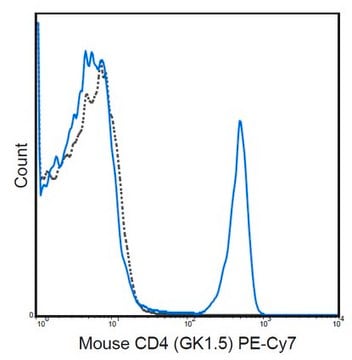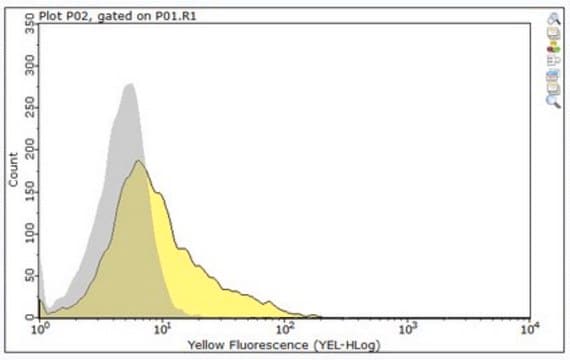MABF402
Anti-CD27 Antibody (human), PE-Cy7, clone O323
clone O323, from mouse
Synonym(s):
CD27 antigen, CD27L receptor, T-cell activation antigen CD27, T14, Tumor necrosis factor receptor superfamily member 7, CD antigen CD27
About This Item
Recommended Products
biological source
mouse
Quality Level
conjugate
PE-Cy7
antibody form
purified antibody
antibody product type
primary antibodies
clone
O323, monoclonal
species reactivity
human
packaging
pkg of 5 μL (0.25 μg/test)
technique(s)
flow cytometry: suitable
isotype
IgG1κ
UniProt accession no.
shipped in
wet ice
target post-translational modification
unmodified
Gene Information
human ... CD27(939)
Related Categories
General description
Immunogen
Application
Inflammation & Immunology
Quality
Flow Cytometry Analysis: 0.25 µg of this antibody detected CD27 in one million human peripheral blood lymphocytes.
Physical form
Storage and Stability
Disclaimer
Not finding the right product?
Try our Product Selector Tool.
Storage Class
12 - Non Combustible Liquids
wgk_germany
nwg
flash_point_f
Not applicable
flash_point_c
Not applicable
Certificates of Analysis (COA)
Search for Certificates of Analysis (COA) by entering the products Lot/Batch Number. Lot and Batch Numbers can be found on a product’s label following the words ‘Lot’ or ‘Batch’.
Already Own This Product?
Find documentation for the products that you have recently purchased in the Document Library.
Our team of scientists has experience in all areas of research including Life Science, Material Science, Chemical Synthesis, Chromatography, Analytical and many others.
Contact Technical Service






